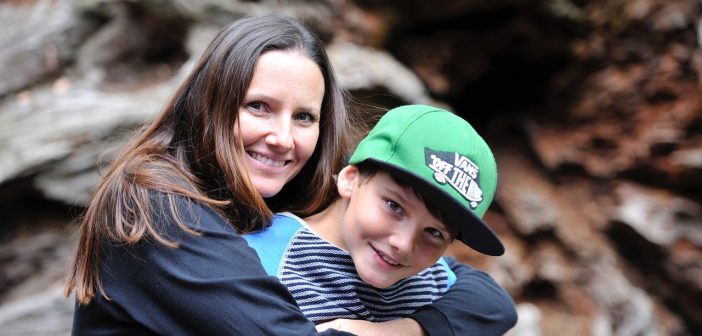Is there anything better than a big smooshy kiss and cuddle from your child?
These hugs, kisses and snuggles are one of the greatest things about being a parent. It is one of the easiest and most important ways to express the unconditional love and bond you share with your children.
Admittedly, I was raised in an affectionate family and am a pretty touchy-feely person. Small wonder then that my own children are extremely affectionate. None of them have any qualms about open displays of affection with me or with any other special person in their lives. They think nothing of greeting a friend, child or adult, with a big hug. To them it is as natural as a handshake and people often comment on how affectionate they are. Thankfully, most view it as a positive thing.
While it is extremely important we teach our children to be safe with their bodies, it is a sad indictment on society that affection between adults and children is so often viewed with suspicion and judgement.
Incredibly, many a parent has been criticized for open displays of affection with their own child. Recently, David Beckham was slammed on social media after sharing a picture of him kissing his 5 year old daughter on the lips. His wife was also criticised for a similar picture last year.
Now, the debate about whether kissing your child on lips is appropriate or not really is down to personal opinion and what each individual (adult and child) feels comfortable with.
However, it does raise the question, can you be too affectionate with your own child?
Great news for the Beckhams and me: No, you can’t.

In fact, the opposite is true. Numerous studies show that children raised by affectionate parents tend to be happier, less anxious and more resilient. Hugs to that!
This is in large part due to the feel good hormones that are released when we feel connected with another person. Oxytocin has actually been dubbed the “cuddle hormone” for the important role it plays in social bonding. Between child and parent this builds the foundation for trust and unconditional love from infancy. Hence, skin-to-skin contact is encouraged immediately after birth.
Even more interestingly, scientific evidence suggests that parental affection can be a protective factor against the harmful long-term effects of major childhood stress. Parental affection has also been linked to better parent-child communication, as well as higher self-esteem and levels of empathy in children.
Of course, the most important thing to remember when it comes to being affectionate with your children is to let them lead. Never push a child past their comfort zone.
If your child isn’t into cuddles or has grown out of them, even a pat on the back or a hand on their shoulder may be enough to fill their need for parental warmth and affection. It’s all about feeling connected.
So hold, hug and high five your children safe in the knowledge that, when you do, you are giving them an even greater gift than your affection.


1 Comment
Pingback: Always Being In the Moment With Your Kids Is Unrealistic - School Mum